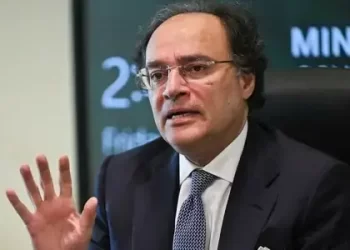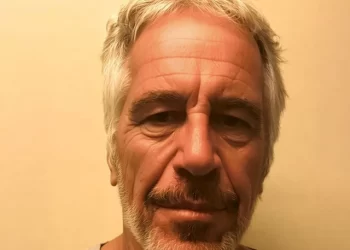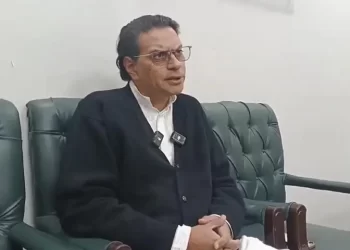A Bangladeshi student group has vowed to resume protests that sparked a lethal police crackdown and nationwide unrest unless several of their leaders are released from custody on Sunday.
Last week’s violence killed at least 205 people, including several police officers, according to an AFP count of police and hospital data, in one of the biggest upheavals of Prime Minister Sheikh Hasina’s 15-year tenure.
Army patrols and a nationwide curfew remain in place more than a week after they were imposed, and a police dragnet has scooped up thousands of protesters including at least half a dozen student leaders.
Members of Students Against Discrimination, whose campaign against civil service job quotas precipitated the unrest, said they would end their week-long protest moratorium.
The group’s chief Nahid Islam and others “should be freed and the cases against them must be withdrawn”, Abdul Hannan Masud told reporters in an online briefing late Saturday.
Masud, who did not disclose his location because he was hiding from authorities, also demanded “visible actions” be taken against government ministers and police officers responsible for the deaths of protesters.
“Otherwise, Students Against Discrimination will be forced to launch tough protests” from Monday, he said.
Islam and two other senior members of the protest group were forcibly discharged from hospital in the capital Dhaka on Friday and taken away by a group of plainclothes detectives.
He told AFP last week he was being treated at the hospital for injuries police inflicted on him during an earlier round of detention and said he was in fear for his life.
“I haven’t seen him since he was picked up,” Islam’s mother Momotaz Nahar told reporters outside the national detective agency after unsuccessfully asking officers to allow a visit with him.
“We are worried about his life,” she said. “I want my son back.”
Home minister Asaduzzaman Khan has said the trio were taken into custody for their own safety but did not confirm if they had been formally arrested.
‘Forced to open fire’
At least 9,000 people have been arrested nationwide since the unrest began, according to Prothom Alo, Bangladesh’s largest daily newspaper.
Khan said 147 people had been killed in clashes so far in the government’s first toll, published a day after Students Against Discrimination gave its own preliminary count of 266.
Khan told reporters on Sunday that police had operated with restraint and only fired on demonstrators to protect government buildings.
“Despite the killing of their fellow officers, they showed extreme levels of patience,” he said. “But when they saw that the properties could not be protected, then police were forced to open fire.”
A curfew imposed last weekend remains in force but it has been progressively eased through the week, a sign of the Hasina government’s confidence that order was gradually being restored.
One small street rally held in Dhaka on Sunday to demand Hasina’s resignation was quickly dispersed by police.
Bangladesh’s mobile internet network was restored on Sunday afternoon, 11 days after a nationwide blackout imposed at the height of the unrest.








